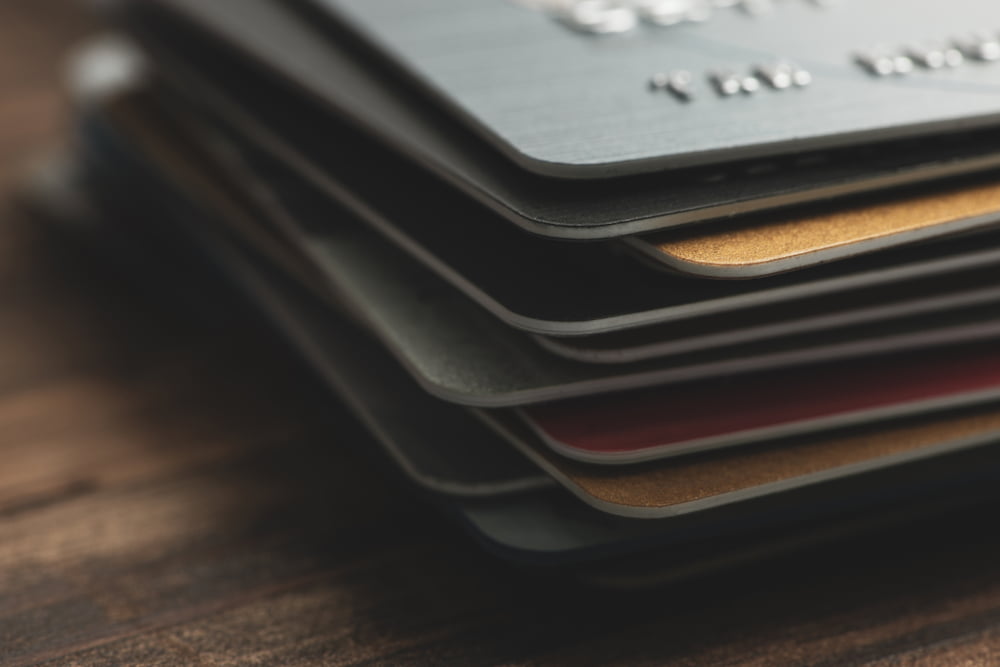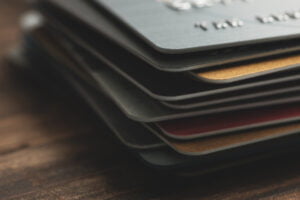Who carries cash these days, credit cards are a convenient factor
By, Jeremy Reif, CRPS
In running a boutique financial planning firm, I often get asked by clients or the local media to comment about credit cards. What are your thoughts about credit cards, and do you recommend them? For the most part, we have a conversation that goes a little something like this.
If you follow people like Dave Ramsey, he recommends that you avoid them at all costs because they allow people to spend money they don’t have and get into debt. Yes, Dave is onto something here, and is good generic advice. I believe that this subject has more to do with proper/improper financial education as well. Therefore, Ramsey is wrong as well. Well, I am not more than 2 paragraphs in and just contradicted myself. Let’s dive a little deeper into this.
The people that Dave is telling to avoid credit cards are usually the ones that are not coming in to see a financial planner in the first place (at least have not been coming to me personally). Dave is referring to his radio and now TV/YouTube audience. He is trying to put the people who need his advice on a budget and stick to a tried true, and tested plan referred to him as the 7 baby steps (Ramsey, 2023). These steps are what he gets his audience to subscribe to. His plan is to give them debt and budgeting guidance on becoming debt free. Dave is speaking to and will refer that 2/3 of all Americans are living paycheck to paycheck and can use his advice (Dickler, 2023). Staying away from credit cards is actually pretty good general advice for the people he is targeting.
People that hire me to do financial planning are usually past the point of living paycheck to paycheck. To put this into perspective in Ramsey’s program, people that are using the baby steps program are at least to step 4 or beyond by the time they reach out (Ramsey, 2023). Historically speaking, my clients who sought me out did not see the need to do planning until they got to a point where they felt like they would want to have someone giving them more specific advice. They were either looking for reassurance in their own thoughts or knowing they have little to zero experience and want professional advice or guidance.
Most frequently people first reach out at dealing with a life-changing event, but not always. This could be as simple as a change in career and don’t know what to do with their existing retirement plan, the death of a loved one, planning for retirement or being prodded by another professional like a CPA or Attorney.
To clarify my position on credit cards, this advice should always be taken with a grain of salt. Nor should this advice be construed as a one size fits all. I am giving my own personal perspective and experience.
Why use a credit card? This is where I have a little trouble with what Dave tells us. For the average American, we need credit for a wide variety of things in today’s society (to get an apartment, personal loan, car, home, etc.) Credit is a double edge sword. How do you build credit without a credit card? It can be done, but it is not as easy as you would like to think. This is sort of like the chicken and the egg concept. Starting out and building credit from nothing can be tricky, especially to build credit if you have no credit. No one trusts you to pay your bills or won’t allow you to sign up for things in the first place to prove you can pay your bills on time if you have no credit.
On the other hand, credit card companies have historically made it easy to apply and get a credit card even when you have zero credit. By saying No credit cards, Ramsey is merely trying to head off a problem before it ever happens. Once you are 18 credit card companies view you as an adult. At this point, you don’t need anyone but you to sign off on your credit card application and therefore no one is looking over your shoulder telling you how to properly use a credit card. This is how many fall victim to the credit card debt trap, extra fees, penalties, maxing out, etc.
I was raised in a middle-class family. My parents encouraged me to get a credit card as soon as I was old enough to get one. I was about 16 when I got mine. At that time, my parents were the co-signers on the card. Meaning, if I didn’t pay my bill my parents would be responsible for doing so. The main goal of why I got a card was to build my own personal credit. I still remember to this day having a conversation with my parents, “I can’t purchase anything with this card unless I have the money to pay the balance when the statement comes.” This was good advice. Not only did this help me build my own personal credit, but it also helped me with my budgeting early on. This is especially important because these skills are not taught at school.
The trick is to train people who are or can be responsible with money. Some kids and even adults do not care, nor are financially responsible. In those cases, it is not a good choice and as Dave says, should not get a credit card. It is all about laying the foundation of expectations through proper education about finances and how to use these tools that are at our disposal.
We see credit card companies essentially give a credit card to almost anyone. From all the credit cards I have used and signed up for over the years, there never was a pep talk like my parents gave me. Credit card companies did not offer education on how to use it either. This is done by design, that is how these companies make money.
Credit card companies consistently give credit card offers in the mail from the time we turn 18 and guessing, probably until the end of our lives. Credit card companies hang out at local colleges to get students to sign up for them, offering some freebees to get them to sign up. Credit card offers have even crept into almost all major box office stores; you are asked at the checkout register if you want to sign up for their credit card for a one-time discount.
The point is all these credit card offers are with zero education or training about the proper use of the credit card. All because we are viewed by the credit card companies as adults, and we should be reading all their disclosures and rules. We should be educating ourselves. How many of us really read all the disclosures in the fine print? Most probably just click the button saying they read them. Even if people read these disclosures, how many understand what they are reading?
There is a not-so-bad part of credit cards. They serve a purpose and offer several benefits for those that use them properly.
- The speed and ease of use in society. Do you ever get into a checkout line, and someone holds everyone up because they are writing out a physical check? Or paying in cash? These options are now viewed as annoying. Gas stations have changed, at least here in WI, you must pay at the pump prior to pumping. The only way to pay at the pump is by credit card. Otherwise, you need to go inside and pay prior to pumping.
- Security of a credit card vs debit card, checkbook, or even cash. Credit cards can provide against fraud and unauthorized transactions if your debit card is stolen a thief can easily drain your bank account and it may take some time for you to get your money back in contrast credit card companies have a more boss fraud detection system and are generally quick to refund fraudulent charges. In addition, credit cards offer some zero liability policies that protect you in cases of unauthorized purchases
- Credit cards may offer rewards programs that debit cards may not offer many credit cards offer cash back on purchases points for Airlines miles hotel stays or discounts on gas or dining if you use your credit card responsibly and pay it off your balance each and every month you can earn rewards without paying any interest or fees this can be a smart way to save money or get extra value from your spending overall credit cards provide flexibility protection and reward plans that debit cards do not which is why they can be a better choice for many consumers
- Credit cards can provide recordkeeping. This can come in handy to look back on your data to find out spending trends or budgeting.
- Credit cards might have an account opening bonus of free cash or low-interest rate promotions. Some companies will say 0% introductory interest for a set number of months. Others might say, depending on how much you spend within a certain amount of time, you qualify for a bonus, credit, or airline miles.
- The last item should be taken with a grain of salt. Credit cards can be used as sort of an advancement of your paycheck in a pinch or emergency. For example, if there is a major purchase that needs to be made. The water heater went out and this was not in your normal budget, maybe you don’t have the cash or money in the bank at the time of need/emergency but will have it by the time the credit card bill comes. The credit card can be used as a buffer.
Truth be told, I use credit cards and most of my clients use them as well. The main principle is to be diligent about them. Make sure that they are always paid off every month. They do serve a purpose for most of my clients.
Clients will use them, so they don’t have to carry a checkbook or cash. They are safer when they travel. While traveling the card company can automatically change to a different country’s currency. These cards also help my clients during retirement to bridge income gaps, by putting purchases on a credit card and then having time to request distributions from their investments. Others use them for cash-back features or travel miles to make their hard-earned money work for them a little harder. These cards can be a good financial tool if used properly.
(Dickler, 2023) https://www.cnbc.com/2023/01/31/share-of-americans-living-paycheck-to-paycheck-jumped-in-2022.html
(Ramsey, 2023) https://www.ramseysolutions.com/dave-ramsey-7-baby-steps-rs-17480-c


